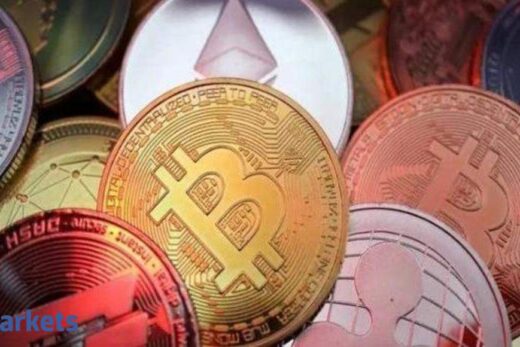Melanion became the first EU fund to set up a Bitcoin tracker. What were the challenges you faced in convincing the regulators about such an ETF?
The way we were able to do it was by not convincing the regulator to change the regulation. What we did is we built a proprietary index made of companies in the Bitcoin space. So it is not a Bitcoin tracker, but it is an equity index made of companies operating in the Bitcoin space such as Bitcoin miners, equipment providers, exchanges, companies which have Bitcoin on their balance sheet like MicroStrategy and crypto asset managers. We took all these companies that are operating in the crypto sphere and built an equity index based on the correlation of each company with the price of Bitcoin. There is a basket of 30 stocks that were the most correlated historically to the Bitcoin price and that way one can avoid direct exposure to Bitcoin. Rather, one gets an indirect exposure because they are operating in this space and at the same time there is a compliant fund to meet all the existing requirements. Although it was just an equity basket because it is Bitcoin, there was some extra oversight from the regulator to make sure everything that we have done is proper.
Do you think that probably this could be the template that other mutual funds could follow in the future?
If possible it is better to do it in a format that already exists because current formats are much easier to operate in. There is still a lot of political tension around cryptos. By going through the traditional route, one just needs to manage the perception. In my opinion, there is a lot of news coverage about a Bitcoin ETF. But I struggle to find how a pure Bitcoin ETF, where funds will be holding Bitcoin directly, can survive in the long term.
If Bitcoin goes to zero, then they will disappear and if Bitcoin becomes what we all hope it will become, then we will be able to have accounts in Bitcoin and everything in Bitcoin like US dollars. There is no US dollar ETF because it does not make sense.
I think now the shift from investors’ point of view needs to happen towards the Bitcoin ecosystem. Every month there is a new Bitcoin miner getting listed on the exchanges. So, there is a big ecosystem there and investors should start looking into these things. That is also why we prefer the equity route because we believe there are more interesting things that are being done in the Bitcoin ecosystem rather than the digital currency per se.
When regulators look at cryptocurrencies, they think of it as an atomic bomb that will basically blow up their carefully manicured financial system. What should be the regulator’s approach to cryptocurrency?
If you take out all the noise, most regulators are not against cryptocurrencies or Bitcoin. Their main goal is to protect investors that invest in them. There have been, unfortunately, a lot of negative headlines where investors lost a lot of money, got scammed, robbed, hacked etc. In my opinion, regulation is going to be a net positive. I am shocked by the lack of KYC in all these products that are usually standard in the financial industry.
So, this is where the regulation will kick in and that would be a net positive because for the time being, the main adoption has been by individual investors and the big institutional investors have not stepped in. Regulations will allow cryptocurrencies to have a much more solid base because you need to operate in a way that protects investors. Once you have the right regulation, it could unleash the full power of crypto.
Ray Dalio of Bridgewater is of the opinion that if Bitcoin becomes too successful, the governments and regulators might kill it. Do you think Bitcoin can be killed anymore?
For the time being, regulators see Bitcoin as a digital asset. They see it more or less like gold but when they start seeing it as money, they might be tempted to hinder it or to limit its potential uses on their territory. That is the scenario I think that Ray Dalio was thinking about. I think overall that is a very extreme scenario and I do not see a developed country like the US or even all the G7 countries take such a harsh and strong step.
Most countries in which it can happen are authoritarian countries and what we have seen so far is that Bitcoin has been embraced in the US. The US is where the community is the strongest in terms of penetration but also in terms of means because you have very deep pockets getting invested every day. So, even if they were to take such a decision, it would have such bad economic implications which will counterbalance any potential benefits of banning it. This is a very hypothetical scenario, and I do not see it happening.
Ever since hitting the all-time high in April, we have seen a very deep selloff in Bitcoin. Going ahead, what is your outlook specifically on Bitcoin and how do you look at that asset probably in the next 12-18 months?
It is very difficult to give a price prediction on Bitcoin as it is to give a price prediction on any asset trading in the financial market. What interests us most is the asymmetric return where basically it can go to zero but it can also go ten-folds higher. This asymmetry is really unique and makes it really interesting. What we have seen so far is that because of the rise in adoption, the scenario of Bitcoin going to zero does not exist anymore. The potential for asymmetric gains is even higher now. Also, governments are printing money like never before. When I look at Bitcoin’s price going up, I see fiat currency price going down. It is very hard to make a prediction on Bitcoin price because it is more a prediction about the fiat currency.
ARK’s Cathie Wood says that Bitcoin could go to $500,000. I wanted to understand from you that if it were to make such a move, what would be the catalyst for that?
It is the same factors that have brought Bitcoin to $50,000, that will have to continue to bring it to $500,000. The higher adoption, widening community, and the number of wallets that we have seen grow very quickly in the past years needs to continue. I believe these trends will continue because now we have a new layer coming on top, which is country adoption. People do not yet grasp the full potential of this type of adoption and El Salvador is going to be a use case for so many countries that count on remittance. This will make it even harder for Bitcoin sceptics to remain sceptical, and it will be harder also for regulators to kill it. The benefits are so strong in terms of financial costs. The implications are much more than only in terms of financial costs; it is to reduce poverty and bring social equality. I do not see how this cannot convert more countries and more sceptics to this technology.
The government in India has introduced a bill that will ban all private cryptocurrency. The crypto industry here is jockeying the government to probably not look at Bitcoin or other cryptocurrencies as competition to the fiat money but instead treat it as a digital asset. Do you suggest that that is probably the approach that the industry should take when it comes to dealing with regulators?
Recognising it as a digital asset is a first step, and a very important step, because people talk a lot about all the bad things that cryptocurrency does but they tend to forget that the worst asset in which we store our value today is gold. I say the worst because it has a tremendous impact on our planet. The gold industry’s job is to dig huge holes into earth to search for a super rare material and then extract it using mercury and devastating chemical products and then you have all those big corporations trying to leave the mine in a semi rehabilitated state. You also have a huge industry of dirty gold that is unregulated and that is on top of all the damage that traditional miners do. Bitcoin is definitely better than gold which has the same property, it does the same thing and it avoids all these bad things that gold does. So for me recognising it as a digital asset is an obvious decision and it is almost an urgent decision.



